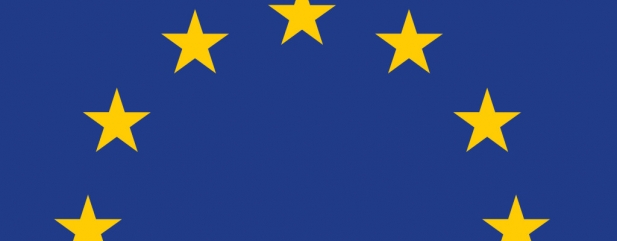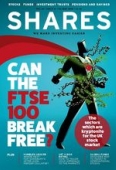Archived article
Please note that tax, investment, pension and ISA rules can change and the information and any views contained in this article may now be inaccurate.
Why you should consider going against the herd with Henderson Eurotrust

Investors looking for an opportunity to put money to work in currently unloved European markets should consider Henderson EuroTrust (HNE). This investment trust aims to deliver superior total returns from a portfolio of high quality European (ex UK) investments.
Former deputy manager Jamie Ross took over as lead manager following the long-serving Tim Stevenson’s retirement in February.
Although the investment process and style remain largely the same – the fund will continue to be comprised of good quality, reliable companies from ‘developed Europe’ which offer consistent returns – Ross has reduced the number of holdings, leaving the fund more concentrated on his high conviction ideas.
The trust trades at a 9.3% discount to net asset value that may appeal to bargain hunters.
The focus is more on growth and total returns than the dividend, but Henderson EuroTrust does provide a growing level of dividends and offers a decent 2.8% yield.
Admittedly, the portfolio and the benchmark FTSE World Europe ex UK index declined in value over the half year ended 31 January 2019 as volatility returned to global markets.
However, on a 10 year cumulative performance basis, Henderson EuroTrust has returned 230.2% versus 176.1% for the benchmark, albeit much of it under the predecessor to the current manager.
GROWTH, QUALITY & CONSISTENCY
Henderson EuroTrust has the tagline ‘seeking growth, quality and consistency’.
The aim is to achieve this by selecting companies with strong market positions and strong balance sheets, consistent growth and high quality management.
The trust invests in large and medium-sized companies which Ross perceives to be undervalued relative to their growth prospects, or on account of a significant change in management or structure. He informs Shares of an increasing focus on integrating ESG analysis into his investment theses too.
Ross seeks out ‘what we would define as good quality businesses in Europe. We’re not trying to reinvent the wheel or do things in a really complex way. We’re not trying to take on high risk, high return opportunities. We want good businesses and we want to own them for a decent period of time.’
ROSS’ ANALYTICAL RIGOUR
One of Henderson EuroTrust’s competitive advantages in the sector is the analytical rigour of Ross, determined to meet with management teams as often as possible in order to further his understanding of industries and businesses.
‘I am a real details guy on the companies,’ he explains. ‘So for me, the job is all about knowing these businesses that we invest in better than anyone else. It is impossible to do the level of research that we want to do and run a 70 stock portfolio. You either run a long list of companies and don’t know them particularly well or you run a short list of companies and know them very well, and that’s how we want to do things.’
Ross (and a recently hired analyst) undertake their own financial modelling. As he explains: ‘If you read our research, it is much more about “what is this company, what does it do, does it generate decent returns?”. The focus on return on capital is absolutely key to our process.
‘It is the key metric – you have to be forming a strong opinion on where return on capital goes in the future. That is the whole basis for the work we do.’
Ross absolutely will not buy cheap companies just because they are cheap. ‘Some of the businesses we own we would define them as cheap, but we do not own them because they are cheap. We own them because we feel there is an underappreciated return on capital story or there is a chance for return on capital to go from a low level to high level at which point the equity valuation will re-rate.’
COMPOUNDERS, IMPROVERS & SPECIAL OPPS
In terms of the investment process, Ross splits the holdings into three broad classifications; ‘compounders’, ‘improvers’ and ‘special opportunities’.
Compounders are high-quality businesses that have a high return on capital, pricing power, typically strong brands and ‘a tendency to operate in industries where there are only one or two competitors. They have a tendency to be big companies with big moats around them, as Warren Buffett would say.’
A great example in the fund is Novo Nordisk, a Danish pharma company focused on diabetes and obesity which operates in a defensive market where Ross believes returns will stay high for a number of years.
He describes improvers as ‘businesses where return on capital is not particularly interesting, but where the return on capital profile will go up, but the market is not pricing them for that’. These include Koninklijke Philips, the Dutch health technology company with a big opportunity for improving margins and returns over time.
Special opportunities are investments based around a specific event or catalyst. A new Henderson EuroTrust holding that sits within this silo is Vivendi, the French media conglomerate controlled by billionaire Vincent Bollore that houses an ‘extremely attractive’ music content business in the form of Universal Music Group.
Ross, a fan of The Libertines, insists the music business is ‘hugely exciting on a multi-year view. We’re going to see a massive growth in music consumption over the next 20 years.’
He argues the market is failing to correctly price Universal Music Group or the incremental return on invested capital (ROIC) improvements of Vivendi. He has spotted a strong re-rating catalyst in the upcoming partial sale of Universal Music Group to a partner that should validate his thesis and materially increase Vivendi’s intrinsic value to boot.
Important information:
These articles are provided by Shares magazine which is published by AJ Bell Media, a part of AJ Bell. Shares is not written by AJ Bell.
Shares is provided for your general information and use and is not a personal recommendation to invest. It is not intended to be relied upon by you in making or not making any investment decisions. The investments referred to in these articles will not be suitable for all investors. If in doubt please seek appropriate independent financial advice.
Investors acting on the information in these articles do so at their own risk and AJ Bell Media and its staff do not accept liability for losses suffered by investors as a result of their investment decisions.

 magazine
magazine









